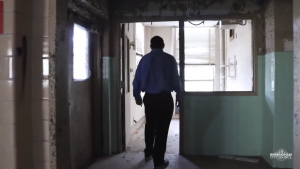Demolition Birmingham is a process of removing existing buildings, structures and other facilities in order to make way for new construction and development. The term “Demolition” has its roots in the Latin word “de-mollire”, which means to soften by taking away something hard. There are many different types of demolition, including partial demolition, full demolition, selective demolition and hazardous materials demolition. The demolition process includes careful planning, safety procedures and specialised equipment in order to ensure that the project is completed safely and within budget.

The History of Demolition Birmingham
Demolition Birmingham has been used in the area since the 19th century, when much of the city was rebuilt after being destroyed during the Industrial Revolution. It wasn’t until the 1960s that the process of demolishing existing buildings became commonplace. Throughout Birmingham’s history, various projects have been carried out in order to demolish old and unsafe buildings in order to make way for safer and more modern buildings.
The Different Types of Demolition Birmingham
There are several different types of demolition Birmingham that can be used depending on the needs of the project. Partial demolition involves removing only portions of a structure. This type of demolition is typically used when a building or facility needs a major renovation or upgrade. Full demolition is when an entire structure is demolished, leaving nothing behind but the foundation and rubble. Selective demolition involves carefully tearing down parts of a building while leaving others intact.
These types of demolition are often used when renovations don’t require the entire building be demolished; instead, only certain portions of it are removed. Hazardous material demolition is used when dismantling a structure exposes workers to hazardous substances. This type of demolition requires special licenced personnel, protective equipment and air monitoring in order to protect workers from potential harm.
In some cases, demolition does not involve actually demolishing the structure itself; instead, the structure is dismantled manually with tools like hammers, saws and chisels. This is known as deconstruction and is commonly used when a structure is being renovated or upgraded. Deconstruction allows workers to carefully remove reusable materials like wood, metal and bricks, which can then be recycled or reused in other projects.
The Process of Demolition Birmingham
The demolition process typically involves several steps. First, the property owners must obtain all the necessary permits, if required. Next, the demolition company must plan the project and make sure that the worksite is cleared of any hazardous materials, people or animals. Once the site has been cleared, the demolition team will start to dismantle the structure using specialized equipment such as cranes, bulldozers, excavators, loaders and other heavy machinery.
When demolishing large structures, the process can take several weeks to complete. After the structure is completely demolished, all of the debris and rubble must be removed from the site and disposed of in accordance with local regulations. Finally, the site must be properly graded, filled and leveled so that new construction can begin.
The Benefits of Demolition Birmingham
One of the biggest benefits of demolition Birmingham is that it can help to revitalize neighborhoods and create new construction opportunities. By demolishing old and unsafe buildings and replacing them with newer, more modern ones, neighborhoods have the potential to become more vibrant and desirable places to live. In addition to this, demolition also helps to reduce urban sprawl, as new developments are often built closer together and can reduce the amount of resources needed in order to build them.
Demolition Birmingham also has environmental benefits, as it can help to reuse materials and reduce the amount of waste produced. Many builders and developers now prefer to use recycled materials from demolition sites in their projects in order to reduce costs and lessen their environmental impact. Finally, demolition can also be seen as a form of economic development, as it can help to create jobs and stimulate the local economy.
Conclusion
Demolition Birmingham is a process that has been used in the city for centuries and continues to be an important part of the city’s construction and development. There are several different types of demolition that can be used depending on the needs of a project, and each type has its own set of benefits. Whether it is being used to revitalize neighborhoods, reduce urban sprawl or even stimulate the economy, demolition is an essential part of the building process.

